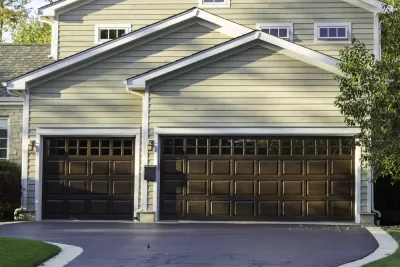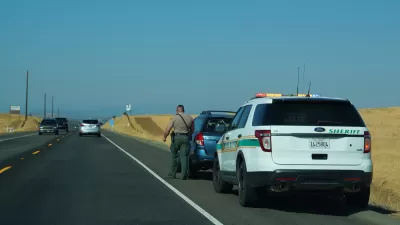Cities that are serious about transportation goals need to think seriously about supporting families who choose to live low car lifestyles.

Cities and counties across North America have adopted transportation goals to increase the number of people walking, biking and riding transit. Ultimately, these goals help improve public health, reduce air pollution from vehicle emissions and make streets safer for everybody. Places that support and encourage one car families will achieve long term success toward these metrics.
By definition, a one car family makes some of its trips on foot, bike or bus, thus helping achieve your transportation goals. One car families don’t magically appear; they require supportive physical environment and public policy.
For cities to thrive in the coming decades, they will need to accommodate families with young and adolescent children who take fewer trips in cars. Often, families fall into the two-car trap: the jobs, schools and services they depend on require two cars. In many places, it’s currently impractical for individuals to live a satisfying life completely car-free. For places with serious goals relating to walking and biking, a focus on supporting one car families will lead to long term progress.
Read the full article on American City & County.
FULL STORY: One car family: the next frontier in transportation

Alabama: Trump Terminates Settlements for Black Communities Harmed By Raw Sewage
Trump deemed the landmark civil rights agreement “illegal DEI and environmental justice policy.”

Planetizen Federal Action Tracker
A weekly monitor of how Trump’s orders and actions are impacting planners and planning in America.

The 120 Year Old Tiny Home Villages That Sheltered San Francisco’s Earthquake Refugees
More than a century ago, San Francisco mobilized to house thousands of residents displaced by the 1906 earthquake. Could their strategy offer a model for the present?

In Both Crashes and Crime, Public Transportation is Far Safer than Driving
Contrary to popular assumptions, public transportation has far lower crash and crime rates than automobile travel. For safer communities, improve and encourage transit travel.

Report: Zoning Reforms Should Complement Nashville’s Ambitious Transit Plan
Without reform, restrictive zoning codes will limit the impact of the city’s planned transit expansion and could exclude some of the residents who depend on transit the most.

Judge Orders Release of Frozen IRA, IIJA Funding
The decision is a victory for environmental groups who charged that freezing funds for critical infrastructure and disaster response programs caused “real and irreparable harm” to communities.
Urban Design for Planners 1: Software Tools
This six-course series explores essential urban design concepts using open source software and equips planners with the tools they need to participate fully in the urban design process.
Planning for Universal Design
Learn the tools for implementing Universal Design in planning regulations.
Clanton & Associates, Inc.
Jessamine County Fiscal Court
Institute for Housing and Urban Development Studies (IHS)
City of Grandview
Harvard GSD Executive Education
Toledo-Lucas County Plan Commissions
Salt Lake City
NYU Wagner Graduate School of Public Service




























